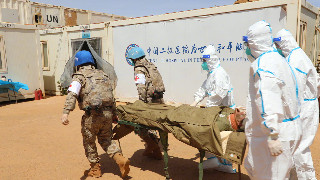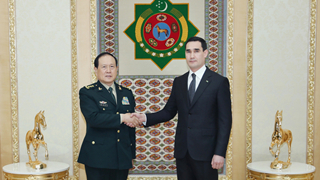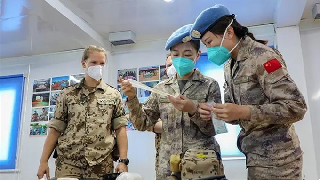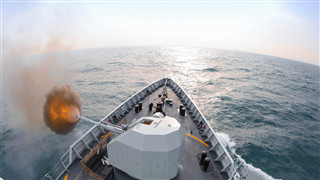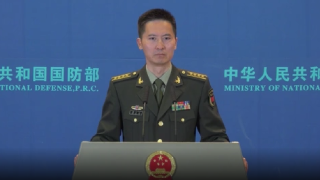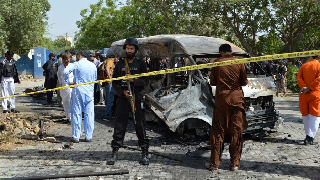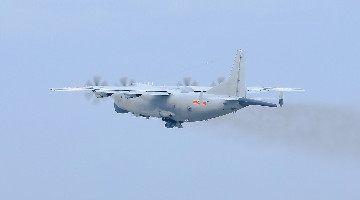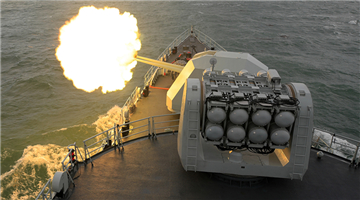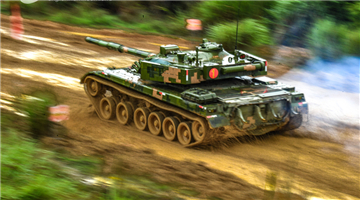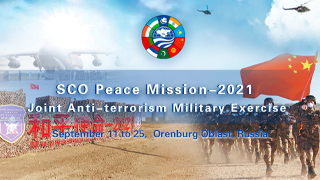The Ukraine situation and the geopolitical tragedy it has triggered don't seem to be able to satiate certain US-led western countries' appetite for political gains out of this crisis. Japanese Prime Minister Fumio Kishida, who was visiting Britain, reached an agreement with his British counterpart Boris Johnson on the "reciprocal access" for the JSDF and British armed forces, which Johnson said was a "landmark" that will boost the UK's commitment to the Indo-Pacific. Kishida made the scare-mongering remark that "what happens to Ukraine today may happen to East Asia tomorrow", adding that “now is the time for the Group of Seven to consolidate our solidarity".
These fancy talks implied a dangerous tendency: NATO, which is dividing Europe and fomenting crisis and war around the world, is trying to transplant its playbook of "group politics" and "bloc confrontation" to Asia Pacific. For quite some time now, Britain has been drumming about an "Asian-Pacific NATO" on several occasions and calling upon countries to respond to the "Indo-Pacific threats" and "help Taiwan defend itself". Japan, a country in the Asian-Pacific region, is excitedly echoing with this move, seeming quite interested to lead the way for NATO to extend its claws to the region.
The main force driving this countercurrent is without any doubt the US. Washington has been urging or forcing its allies to act in line with its shift of strategic focus to the east in recent years, and those countries are willing to act as America's lackeys while making their own calculations. London hopes to augment its declining influence by "finding the path" for Washington, while Japan dreams of shattering the "restrictions" imposed by its Constitution of Peace and reviving militarism leveraging on "Big Brother's" appeasement and indulgence. In sum, the Ukraine crisis is a bonanza in the eyes of some western politicians, who therefore will definitely keep escalating regional tension in order to maximize their interests out of the crisis.
Japan's unusual excitement about the Russia-Ukraine conflict is worth special attention. Its prime minister, foreign minister and defense minister all set out and made a series of diplomatic moves in neighboring countries, Europe and the US. Although the Asian countries they visited didn't share their excitement and kept generally cautious and vigilant, Tokyo found resonance and warmth of friendship in London, which is dreaming of becoming Asia's suzerain again by ganging up with like-minded countries. What an uncanny coincidence to the Anglo-Japanese Alliance at the beginning of the 20th century!
Countries in East Asia, or the entire Asia for that matter, have maintained overall stability in the past decades primarily because they can seek common ground while shelving differences beyond ideological and geopolitical divergences. That's why Asia has become the most vibrant region in the world today and the "Asian century" has been a lasting topic of hot debate in the international academia on strategies.
Now, certain country in the region is trying to collude with the US-led West and introduce to Asia Pacific the security mode that has proven a failure and caused serious consequences in Europe. Why is it trying to sabotage regional peace and stability? The collapse of European security is solid proof that the US-led NATO – its system and its approaches –no longer suits the world today. While some country, being solely obsessed with their own interests, is moaning that "what happens to Ukraine today may happen to East Asia tomorrow", it is seriously thinking about reproducing the Ukraine crisis in other places around the world. All Asian countries must be highly vigilant against this tendency.
History has repeatedly shown us that security for different countries is indivisible, that no country shall guarantee its own security at the expense of that of other countries. NATO's mode of operation that features bloc confrontation divides regional countries into two groups – either a NATO member or a non-member, which will only create a stronger sense of insecurity and drag everyone into the security paradox and dilemma where they constantly escalate the alarm and hostility toward each other. NATO, a military bloc, is by no means the antidote to alleviate the security anxiety and tension among regional countries – it is the poison itself. We should not let the "new Cold War" ruin the peace and stability in Asia, and all countries in the region must forge a consensus and awareness of resisting and rejecting an "Asian Pacific NATO".
We also need to remind Japan not to undermine the regional environment for peaceful development by ushering a wolf into the house. That will bring a disaster to itself and its Asian neighbors. History has taught us a good lesson on that point.
Editor's note: This article is originally published on huanqiu.com, and is translated from Chinese into English and edited by the China Military Online. The information, ideas or opinions appearing in this article do not necessarily reflect the views of eng.chinamil.com.cn.
